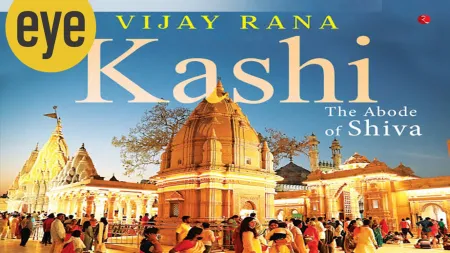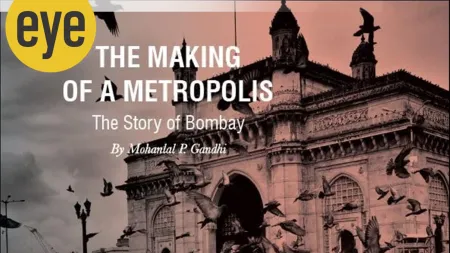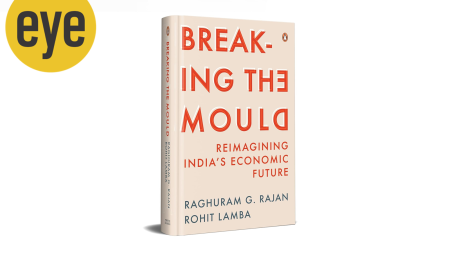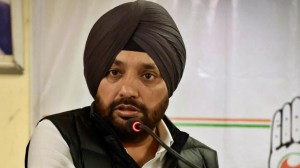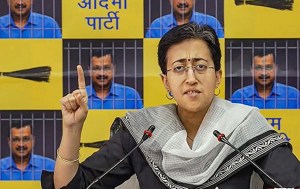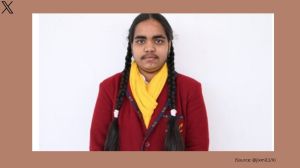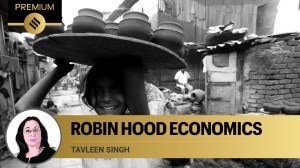- India
- International
Why SDPI, PFI’s political wing is growing in Karnataka
Christophe Jaffrelot and Sanjith Rao write: Saffronisation of politics and failure of the Congress has contributed to outfit's growing popularity. In the absence of effective political representation, the Muslim vote could shift to a party that 'represents' the community better
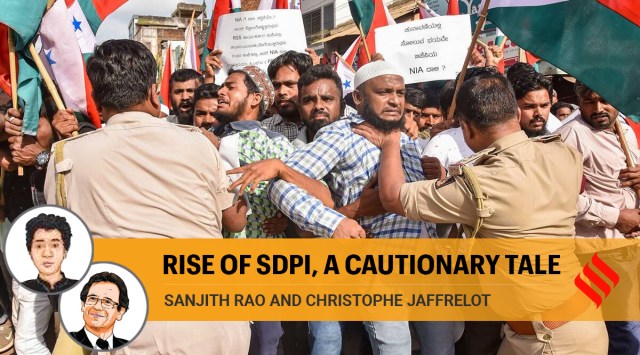 Police attempt to detain Popular Front of India and Social Democratic Party of India workers during a protest against the raid of National Investigation Agency, in Hubballi on Thursday. (PTI Photo)
Police attempt to detain Popular Front of India and Social Democratic Party of India workers during a protest against the raid of National Investigation Agency, in Hubballi on Thursday. (PTI Photo)Once described by the poet Kannada Kuvempu as Sarva Jangadha Shaantiya Thota, (a garden in which all people co-exist in harmony), Karnataka’s image has undergone drastic change in recent times. Over the last year, it has been affected by large-scale saffronisation of politics. The root cause is simple: The replacement of veteran BJP leader and Lingayat strongman, BS Yediyurappa with Basavaraj Bommai as the state’s chief minister. Bommai, also a Lingayat, lacks popular support even from his own community – one of the state’s most influential when it comes to electoral politics. The new CM has resorted to polarisation in a bid to cling on to power.
Saffronisation of the state’s politics has taken several forms – rising vigilantism, the passing of “anti-conversion” Bills in both Houses, the hijab issue and the subsequent economic boycott of Muslim traders, the halal controversy, the rewriting of the school curriculum, and the resurrection of the Baba Budangiri Dargah conflict. These politically driven campaigns have been directed at the state’s 8 million odd Muslims.
The Muslims of Karnataka, like in most other parts of India, are increasingly under-represented in the political sphere today. The state’s Muslims community have not had a presence in the Lok Sabha since the 14th Lok Sabha (2004-2009). Of the 224 seats in Karnataka’s 16th Assembly, only seven, roughly 3 per cent, are held by Muslims though the community accounts for close to 13 per cent of the state’s population, according to the 2011 Census. Three of these MLAs are from Bengaluru. Two of the remaining four are from the “Hyderabad-Karnataka” region – Kaneez Fatima from Gulbarga Uttar and Rahim Khan from Bidar. The other two Muslim MLAs are UT Khader from Mangaluru and Tanveer Sait from Narsimharaja constituency in Mysore. Notably, all seven are from the Congress.
The Congress’s response to the increasing communalisation in the state, however, has lacked the force required from a “secular party”. The party’s members seem to be toeing a “balanced line” in a bid to not disappoint the floating voters. KPCC President DK Shivakumar has been reported as having wanted to go soft on the hijab issue. While addressing a press conference, a couple of months ago, the Deputy leader of the Opposition and Muslim politician, U T Khader took a jibe at the pro-hijab protesters by asking them to value their liberty and freedoms in India (as opposed to Pakistan and Saudi Arabia) and said that the courts will not make rules as per their (pro-hijab supporters’) “whims and fancies”. Such statements by senior leaders of the state’s Congress raises eyebrows on the party’s willingness to represent the Muslim community.
In the context of the polarisation process mentioned above, the Congress’s lacklustre response is bound to give an impetus to the slow yet steady growth of the Social Democratic Party of India (SDPI), the political outfit of the Popular Front of India, the now banned organisation. The SDPI has recently had a taste of electoral success in Karnataka’s coastal belt, with victories in urban local body elections – three seats in Kaup and one each in Vittla and Kotekar. It has also registered impressive victories in the gram panchayat elections in Dakshina Kannada, Kodagu and Hassan districts. While these victories are unrelated to the hijab controversy, the growth of the SDPI does indicate the rising disgruntlement of the Muslims against the Congress. The hijab controversy could increase the polarisation in the state.

In the absence of effective political representation, the Muslim vote bank could shift to a party that “represents” the community better, a phenomenon that calls to mind the inroads Asadudin Owaisi’s MIM has made in some Congress strongholds in other parts of the country.
We should, however, not get ahead of ourselves about the SDPI’s prospects in the next year’s state election. Despite its electoral victories in local body elections, questions about the outfit’s capacity to make a dent at the state level remain – rightly so, for the funds and organisational capacities required to win a state election are much higher. In the 2018 assembly elections, the party contested only three seats and its candidates lost their deposits in two of them. The SDPI’s candidate also lost his deposit in the 2019 by-election to the Shivajinagar (Bangalore) constituency. The minority may choose not to split the Congress’ vote share in 2023, especially if the party projects a more secular face and the BJP intensifies its polarisation strategy.
Another variable needs to be factored in. Unlike the PFI, the SDPI has not been banned so far. But enforcement agencies have cracked down on the party’s members. The National Investigation Agency (NIA) and Enforcement Directorate (ED) have conducted raids in more than 10 states and arrested over 100 activists from the SDPI stable. This could make the party ineffective and dissuade Muslim voters from voting for it. On the contrary, the voters may also show solidarity with the embattled outfit. But then will SDPI candidates be even allowed to contest? That depends on whether the BJP intends to divide the Muslim vote or if it prefers to please its support base.
Jaffrelot is senior research fellow at CERI-Sciences Po/CNRS, Paris, professor of Indian Politics and Sociology at King’s India Institute, London, and non-resident scholar at the Carnegie Endowment for International Peace. Rao is a student at Sciences Po
EXPRESS OPINION
More Explained
Apr 28: Latest News
- 01
- 02
- 03
- 04
- 05





